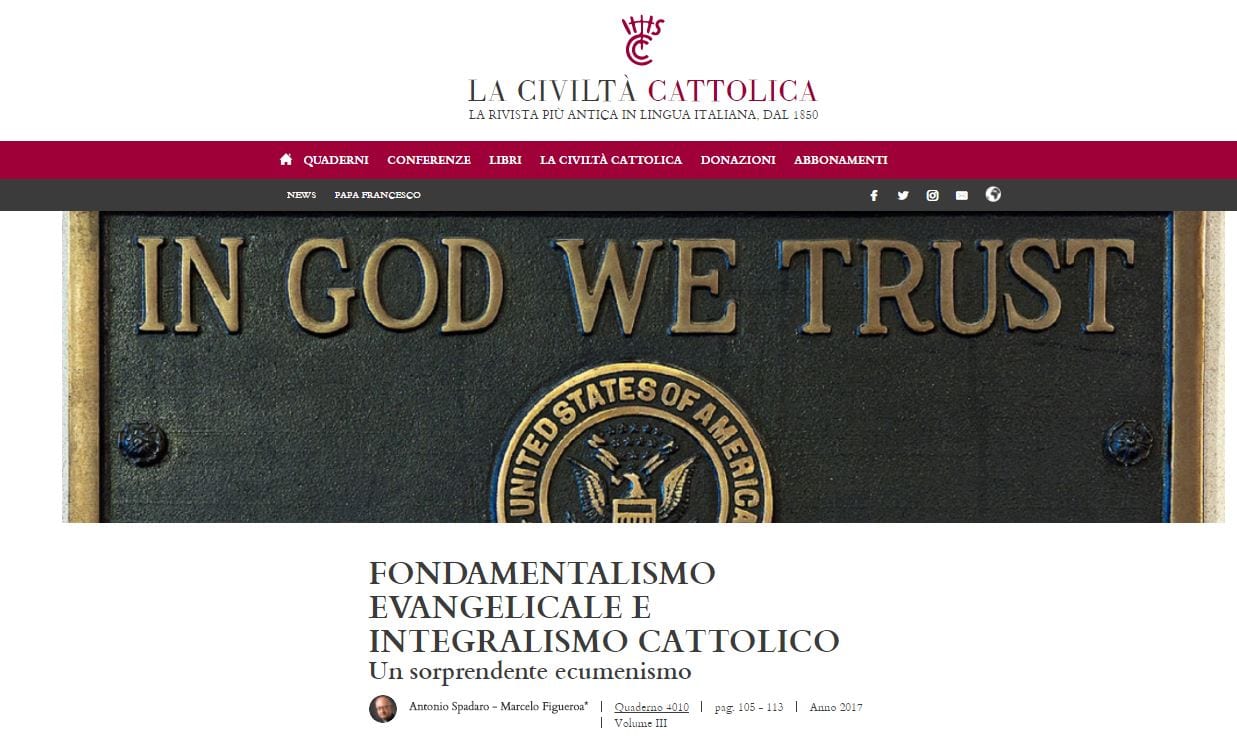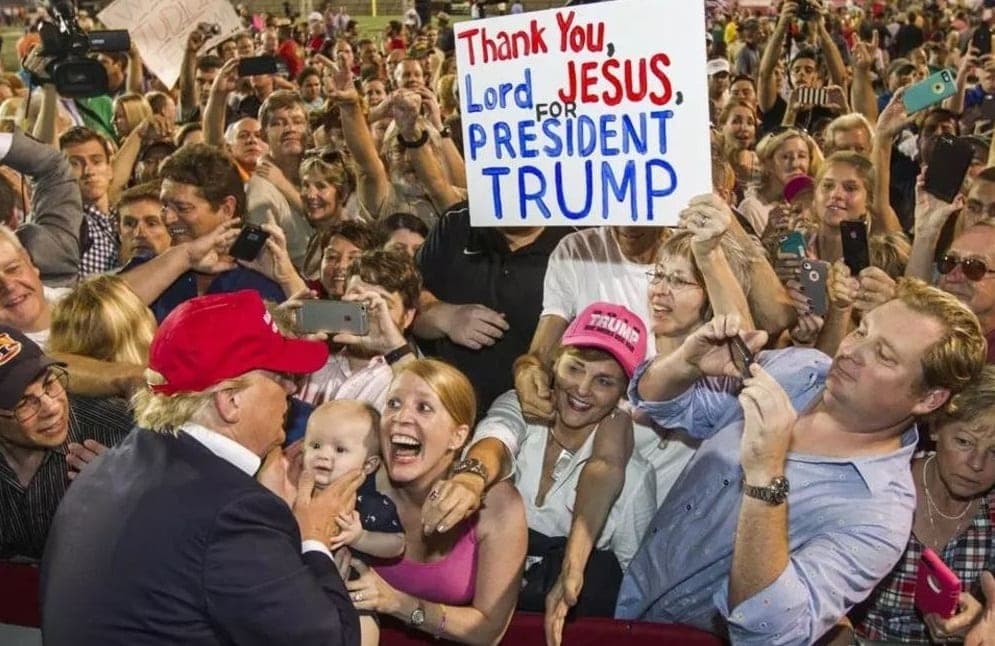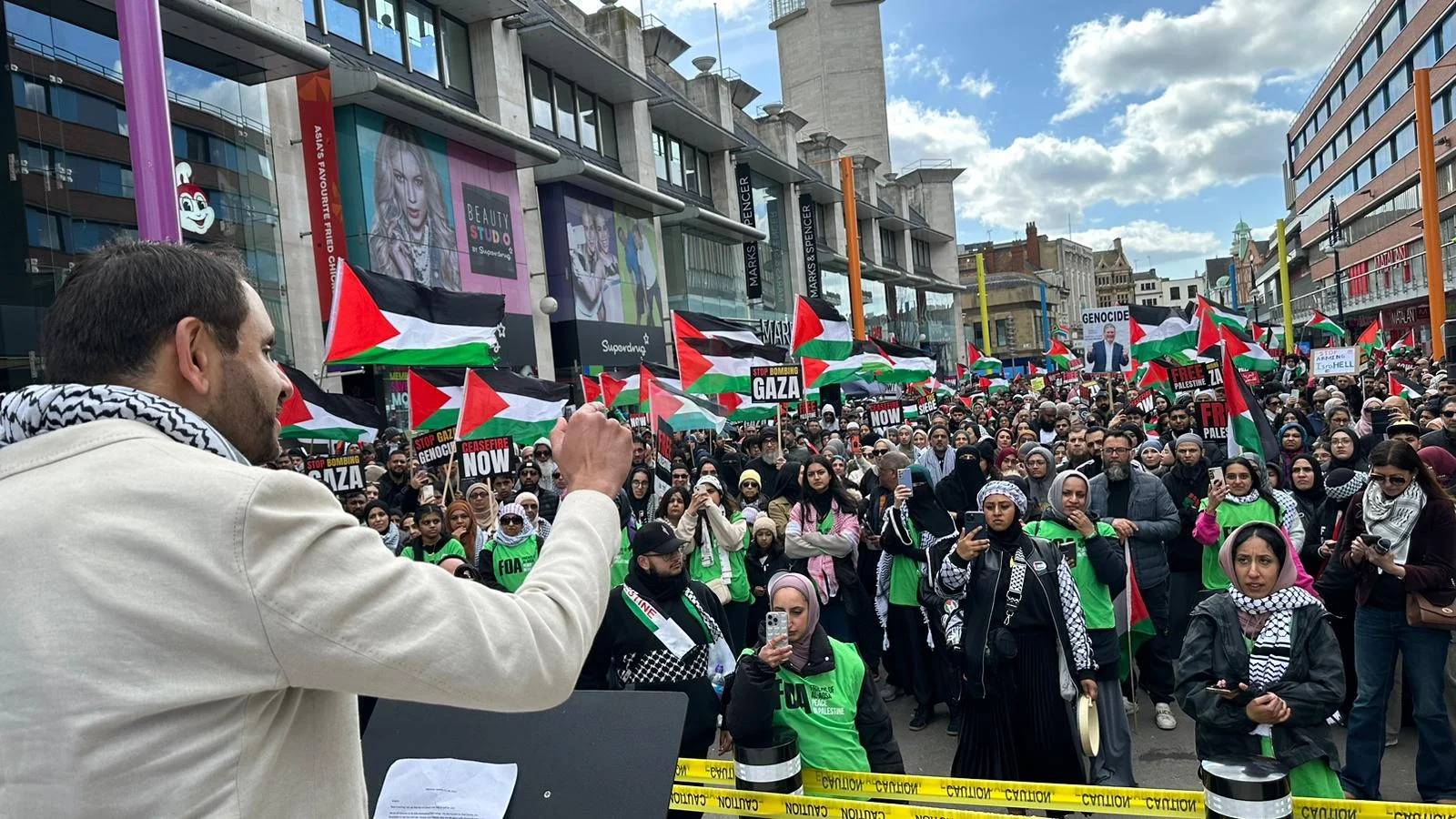On Thursday, the Jesuit-run journal La Civiltà Cattolica, which is reviewed by the Vatican’s Secretariat of State prior to publication, carried an article by two close friends of Pope Francis arguing that a “Manichean vision” underlies a “a strange form of surprising ecumenism … between Evangelical fundamentalists and Catholic Integralists” in the United States.
(“Manichean” refers to an ancient Persian religion that believed in a cosmic battle between light and dark, good and evil, and is used now to mean black-and-white thinking.)
By “Catholic Integralism,” the article appeared to have in mind, at least in part, Catholic support for U.S. President Donald Trump. It cited Trump adviser Steve Bannon, who’s a Catholic, suggesting he’s a “supporter of an apocalyptic geopolitics.”
Given the hyper-polarized nature of today’s America, immediate reaction here mostly broke down along pro- or anti-Trump lines … if you’re inclined to give the president a break, you probably hated the article, and vice-versa.

Apart from its political significance, however, I’ll offer four longer-term notes about why the article matters.
First, the authors – Jesuit Father Antonio Spadaro, one of Francis’s closest collaborators, and Marcelo Figueroa, a longtime Protestant friend hand-picked by Francis to edit the Argentinian version of L’Osservatore Romano – clearly reflect the kind of views held by the pontiff. The Secretariat of State would not have signed off if the presumption wasn’t that Francis would approve.
If you want to know what Francis himself makes of the Trump phenomenon, in other words, this is probably the best place to go.
Article by pope’s confidantes adds little to understanding Trump’s America
Second, this is not just business as usual. It’s rare for a Vatican media outlet, even one that’s only semi-official, to comment directly on the politics of another nation, especially in a fashion that can’t help but be seen as fairly partisan.
In tandem with other moves, including choices for senior American prelates, the article solidifies the impression that Pope Francis and his team consciously are trying to reorient the ethos of the American church, away from the emphasis on Catholic identity and cultural battles that dominated during the John Paul II and Benedict XVI years, towards an approach they perceive as broader and more pastoral.
Whether that’s good or bad, or somewhere in between, will depend on one’s outlook, but the fact of it seems beyond dispute.
The impression that the U.S. bishops were among the constituencies to which Spadaro and Figueroa were speaking was enhanced on Friday, when the editor of a widely read Catholic news platform in Italy called Il Sismografo, Luis Badilla, posted this comment on the article:
“What comes to mind immediately is a single and important question: Why haven’t the bishops of the United States already spoken on this delicate and decisive topic, or authoritative exponents of American Catholicism? How in the world did it have to come down to an analysis, and a warning, from the outside?
“The question isn’t irrelevant, and certainly won’t be in the future,” Badilla wrote. “We’ll see what happens now, after the embarrassing silence of these hours.”
Spadaro re-tweeted the comment, calling it the “note of the day.”
(In defense of the bishops, however, it’s fairly ironic that on the same day Badilla and Spadaro were calling them out, the U.S. bishops released statements criticizing Trump’s new all-time low in the admission of refugees and also calling the Republican-backed health care overhaul “unacceptable.” If that’s how stooges of the Trump regime act, one’s tempted to say, God save him from his enemies.)
(Similarly, if Spadaro and Figueroa really wanted to place partial blame for the rise of “Catholic Integralism” with the U.S. bishops, they probably should have picked a better example than Church Militant, a conservative media outlet led by layman Michael Voris. Anyone who knows the score is familiar with the frosty relationship between Voris and the bishops’ conference, including the fact that he and other personnel from Church Militant were recently asked to stop distributing flyers in the hotel hosting the July 1-4 “Convocation of Catholic Leaders” sponsored by the bishops in Orlando, Florida, after convocation organizers said the activity was being disruptive.)
(After Church Militant passed out the flyers – titled “Save the Church” – Bishop Frank Caggiano of Bridgeport, Connecticut, delivered a rebuke: “Forgive me, but no one in this room is going to save the Church,” he told a crowd. “We already have a savior, and his name is Jesus Christ.” Again, if that’s encouraging somebody, I’d love to see what discouraging them would look like.)
Third, over time debate around the article may be less about Trump, and more about the accuracy of how the authors see American realities.
Among other criticisms, some say Spadaro and Figueroa conflate Fundamentalism, the Prosperity Gospel, and Dominion Theology, three distinct strands in American Christianity, creating an impression of Evangelical Protestantism as a single, undifferentiated mass. A colleague suggested over the weekend that Evangelical groups in the States ought to invite Spadaro and Figueroa to visit, perhaps adding some depth to their perceptions.
Of course, a certain bewilderment about religion in the U.S. is a fairly widespread European phenomenon, hardly confined to the Vatican.
Yet Spadaro and Figueroa also have defenders. Michael Sean Winters of the National Catholic Reporter, for instance, was enthusiastic.
“Finally, someone in authority recognized that the effort to link conservative Catholics and Evangelicals was always more about politics than about religion, and that it was bound to alienate many churchgoers,” he wrote.
The contrast highlights another sense in which we’re through the looking glass with Pope Francis.
Back in the 1980s and 90s, it was the Catholic left in America inclined to object that the pope didn’t understand the U.S. – that John Paul II didn’t appreciate our democratic ethos, our emphasis on women and laity, the collaborative spirit of American parishes, and so on.
Today, it’s more likely to be the American Catholic right grumbling that the pope doesn’t “get us” – that he fails to appreciate how American capitalism breeds opportunity rather than oppression, that he thinks Americans are war-happy cowboys and doesn’t see all the good we do in the world, that he doesn’t understand how his ambiguous declarations lend fuel to the fire of secular confusion and assaults on religious freedom here, and so on.
To put it mildly, this article won’t do much to reassure that group.
(In all honesty, both camps probably ought to recognize that whenever Vatican personnel address a culture outside their experience, there’s going to be some separating the wheat from the chaff required, no matter what their politics. If I had a dollar for every time I’ve heard a Dutch Catholic, or a Nigerian, or an Indian, or whoever, complain that “the Vatican just doesn’t get us,” I’d be in the Bahamas right now managing my investments from a private cabana on the beach.)
Fourth, and perhaps most importantly, whatever one makes of Spadaro and Figueroa’s assessment of the United States, it’s not just them.
I recall a session with reporters held back in 2003 by the late Italian Cardinal Pio Laghi, who had just returned to Rome from a White House meeting with then-President George W. Bush and his national security team, part of a last-ditch effort by John Paul II to try to head off war in Iraq. It was clear the Bush team was determined to go ahead despite the pope’s objections, and we asked Laghi, a former papal ambassador in the United States, what he made of it.
In response, Laghi said he sensed “something Calvinistic” in Bush’s iron determination to forge ahead, meaning a sharply dualistic sense of good v. evil. (The term refers to one of the fathers of the Protestant Reformation, John Calvin, known for his rigidity.)
Over the years, a classic view of the U.S. in the Vatican, especially among Italians but more widespread, is that historically we’re a Calvinist culture, not a Catholic one, and somewhere deep in our DNA is the tendency to think in terms of the “elect” and the “reprobate.” As the late Cardinal Francis George of Chicago once said, even Catholics in the United States tend to be “Catholic in faith, Protestant in culture.”
That Calvinist instinct, Vatican diplomats and policy-makers often feel, can drive a laudably strong commitment to a cause and a willingness to act while others dither, but it can also create blind spots and a worrying eagerness to demonize adversaries.
Bottom line: Suspicion of a latent “Manichean” streak is a time-honored Vatican take on America, which neither Pope Francis nor Spadaro and Figueroa invented, and which will still be there long after they’re gone.
Naturally, one doesn’t have to uncritically embrace how others see us, but it’s still useful to know what they’re thinking, especially when they’re in charge of the Church to which we all belong. In that sense, Spadaro and Figueroa may have performed a service by putting it all on the table.
Correction: An earlier version of this article implied staff of Church Militant attended the recent Convocation of Catholic Leaders in Orlando. They were distributing flyers in the hotel in which the convocation was taking place.


















